Living with PTSD: How my husband was resurrected
Suicide is the single largest killer of Australian Defence Force members and veterans today.
An Australian Institute of Health and Wellbeing report states that at least 325 serving and ex-military personnel took their own lives between 2001 and 2015. That’s over five times the number of Australian soldiers who have been killed in service over the same period of time.
One of the primary factors contributing to this loss of life are mental health issues, including depression, anxiety disorders and post-traumatic stress disorder, or PTSD.
Zoe Cullen met her husband Andy 15 years ago when she was 25, and remembers him as a fiercely loyal young man with a strong passion for life and an incredibly honourable nature – in the endearing, old fashioned sense, she tells Be.
He’d just finished his officer training – both Andy’s father and grandfather had served in the army before him – and they soon married and welcomed a baby boy.
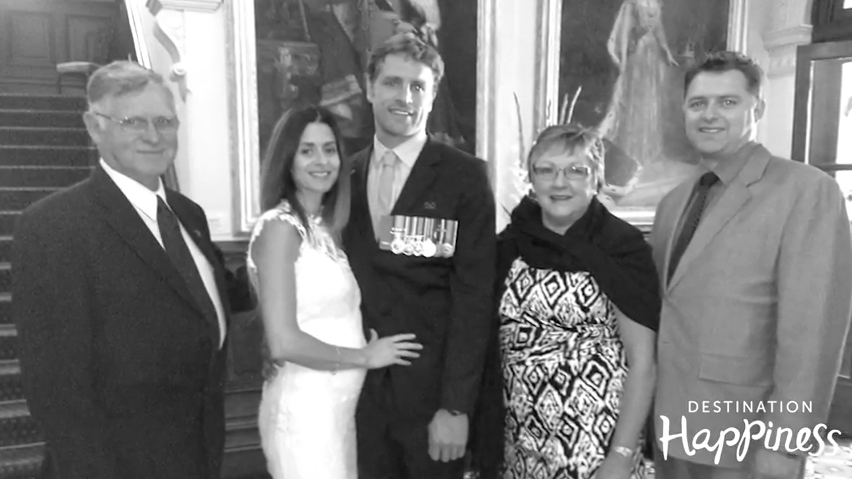
“He was just the most beautiful dad, one of those guys who, when his kid got hurt, he cried,” Zoe tells Be.
“He was very protective and he really stepped up.”
In the next 24 months, Andy went on to join the IED team – who dismantle improvised explosive devices, and assist victims after bombs go off – and just days after the birth of their second son, he was deployed to Afghanistan for six months.
“When they go away, you build up this self-protective mechanism because you know that hurt’s coming,” Zoe says.
“You go through a grieving process, you’ve got to learn to get on without them – and the worst thing is you know there’s a chance they won’t come back.
Fortunately, Andy did come back – but things had changed.

He didn’t speak much about what had happened in Afghanistan, and his nights started to become plagued by graphic nightmares.
“He started having nightmares, and when I say nightmares, I mean he would sit up and act things out and talk to me,” Zoe explains.
“One night, I woke up and he was patting me down, he was trying to put burns out.”
The experience was incredibly frightening for both of them, and Zoe couldn’t help but worry about her two young sons, as she had no idea what to expect from her husband who would be “completely out of it”.
“I slept on edge all the time,” she says, “One night he did actually grab Charlie [their younger son, who was eight months at the time] and picked him up and started wrapping stuff around him.
“He thought he was a child who had been blown up, and he was trying to stop the blood. It was quite traumatic, Charlie was screaming.”
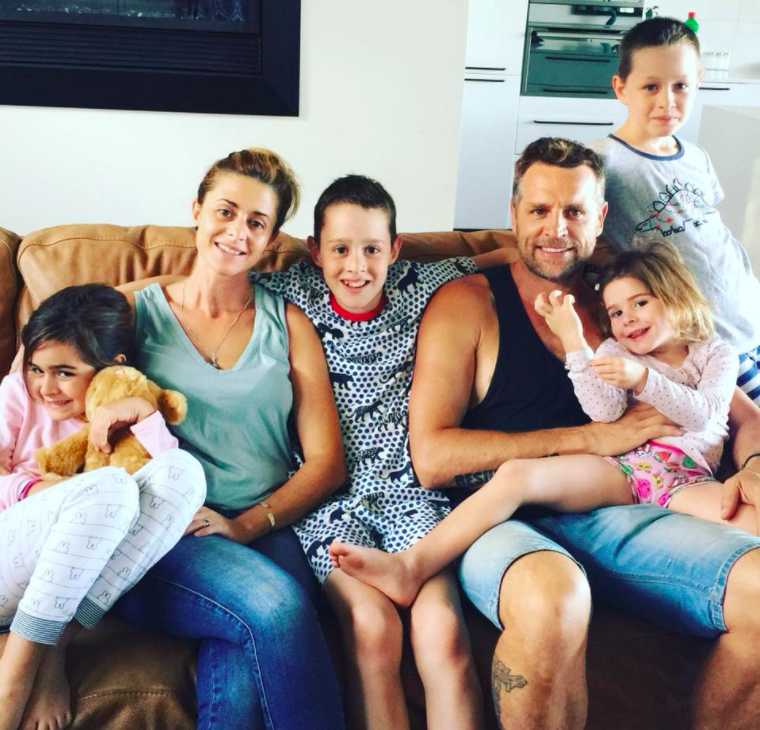
During his waking hours, Andy had also started drinking heavily – far more heavily than he’d ever done in the past.
By the time his next deployment came around, the couple had welcomed a third child, a daughter, and Zoe wasn’t prepared to juggle three little ones and a household alone.
But Andy had to go, and the three months he was initially meant to be in Afghanistan, soon extended to 11.
It was hard. And if having to play both mum and dad for a year hadn’t already put enough strain on Zoe’s relationship with her husband, she also saw a massive change in him when he finally returned home.
“I was shielding the kids because he would have these irrational outbursts of anger,” she says, “We started fighting all the time, he had a complete disconnect with myself and the kids.”
She was hoping he would eventually settle back into the routine of being at home, but six months fell over and she was still walking on eggshells around him.
“He used to always be very compassionate, if I was in pain, he’d melt – he was always very caring. Then he just became completely self-absorbed and immovable.
“It got to the point where we’d fight and I’d cry, and there would be nothing from him.”
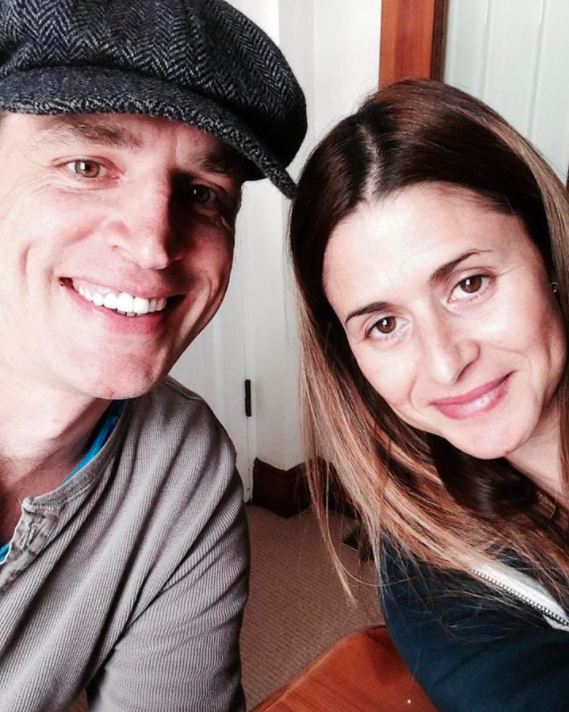
The nightmares had also followed Andy back, as had his habit of staying out late and drinking to excess.
Zoe had hoped to get help with the home and kids when Andy returned, but was sorely mistaken. Instead, she found herself more alone than ever.
“I was so overwhelmed. You’re not getting rest, you’re not getting support, you just become a really crappy version of yourself. It was a horrible situation,” Zoe says.
“Our relationship took a really big hit. He’d been away for half of our marriage.”
It got to the point where their relationship was about to fall apart when Andy went to see a psychiatrist and was diagnosed with PTSD.
They now had an injury to explain his dramatic personality change – as well as other physical issues he was experiencing like chest pains and rashes – and with this diagnosis in hand, Zoe was determined to help.
She tried to become a life coach of sorts, encouraging him to get enough sleep and cut back on the booze. What she achieved however, couldn’t have been further from her intentions.
“I was basically his parent,” she says, “I completely emasculated him and even though I was trying to help him, I was actually putting him under a lot of pressure.”
“He felt like he was disappointing me. It was probably one of the worst things I could’ve done. There was no help kit.”
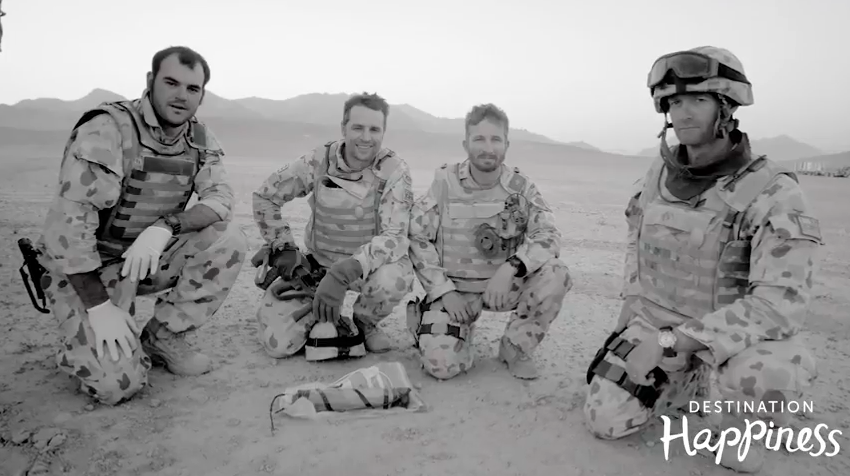
Andy was equally in the dark about what to do.
“He had no awareness of PTSD [before the diagnosis],” Zoe explains, “he thought he was going crazy.”
“He hated himself, he thought he was a failure, and the psychiatrist said he was never going to get better. He started having suicidal thoughts, although he didn’t tell me that at the time.”
Andy was put on medication, which Zoe concedes saved his life, but it also turned him “into a zombie”.
Then Zoe fell pregnant again, and she was absolutely devastated. She was grieving the relationship and the husband she’d lost, struggling to manage the person Andy had turned into, and was shielding the kids from his erratic behaviour.
“I was like gosh, I’ve got three kids already, and another child coming along, my husband is no help to me whatsoever, in fact, he’s making things harder.
“I did not sign up for this, I don’t think I’m strong enough to do this, I had a complete meltdown.”
Concerned for her own health and that of her unborn baby, Zoe handed over all responsibility in caring for the injury to Andy.
“That was a big turning point for us, it was like I was giving his masculinity back. He stopped letting PTSD define him,” she said.

At one point, Andy stopped taking all his medication at once and his heart failed. But it was a blessing in disguise.
“He thought he was dying, and he realised he didn’t want to die. The journey with PTSD can be such a long one, he’d been fighting for three years at this stage and he said, I actually want to live.”
For the first time, Andy opened up to his wife about his suicidal thoughts, admitting that he had been looking for a way out; a way to die that wouldn’t embarrass his family. He had thought they’d be better off without him.
“I don’t think I really understood it until he told me that he’d thought about killing himself,” Zoe says.
“He admitted it to me, and it really hurt. [His outbursts, his personality change], it wasn’t deliberate, he couldn’t help it.”
From there, they were able to have the hard conversations needed to save their marriage and his life.
Zoe outlined who she needed him to be, and for her part, she started learning when to back off, not to take things personally, and importantly, not to always ask if he’s ok.
“I became different for him because I understood where his head was going,” she says.
“He’d say, ‘actually, I’m just not in a good place right now,’ and I learnt to recognise it as well.”
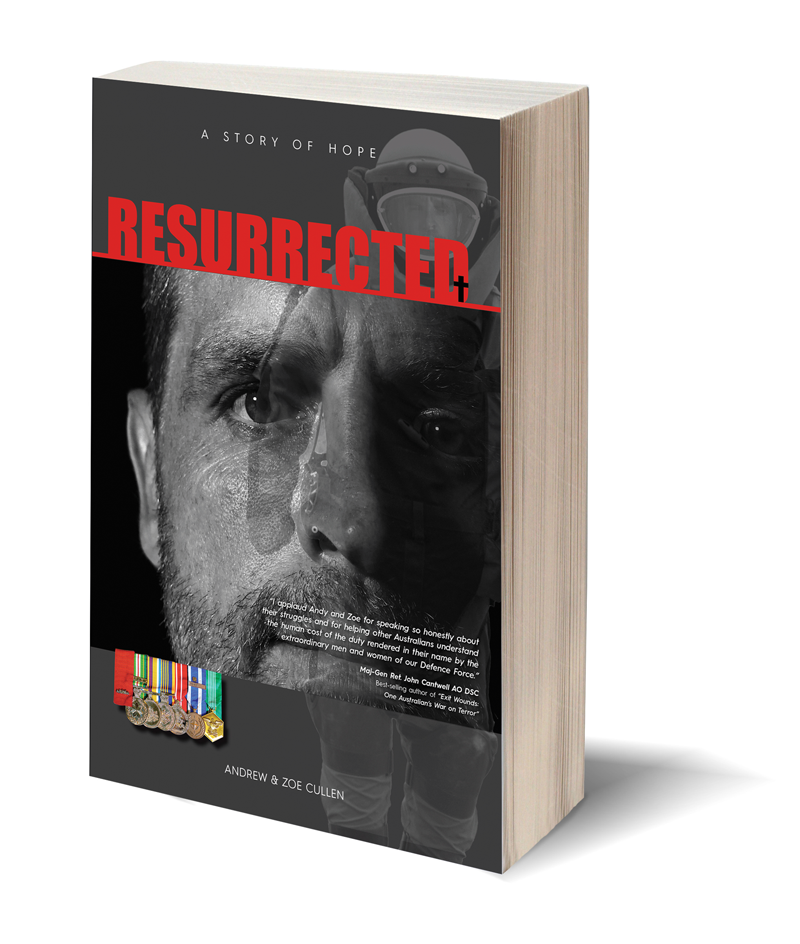
Finding a role where he was needed and respected was also important for Andy, and he began to be excited about the future for the first time in a long time.
“He’s still got PTSD but he controls it, we’re able to manage it. Doctors told him he couldn’t get better, but nothing could have been further from the truth.
Both Zoe and Andy have recorded their own accounts of their experience with PTSD in an eye-opening book, Resurrected.
It started from the notes and diaries Andy took while in Afghanistan, and is an honest look at how they coped with the injury when he returned home.
They want their story to help other returned service men and women to realise there is hope, and that they’re not alone.
Defence Force figures estimate that 90 per cent of service personnel will experience a traumatic event and close to eight per cent will develop PTSD while serving, however, many veterans believe that figure is much higher.
Last year it was estimated that we lost 84 veterans to suicide in just 12 months.
You can find more information about Zoe and Andy’s book here.
If you are concerned about the mental health of yourself or a loved one, seek support and information by calling Lifeline on 13 11 14, Mensline on 1300 789 978, or Kids Helpline on 1800 551 800

 Yahoo Lifestyle
Yahoo Lifestyle 
